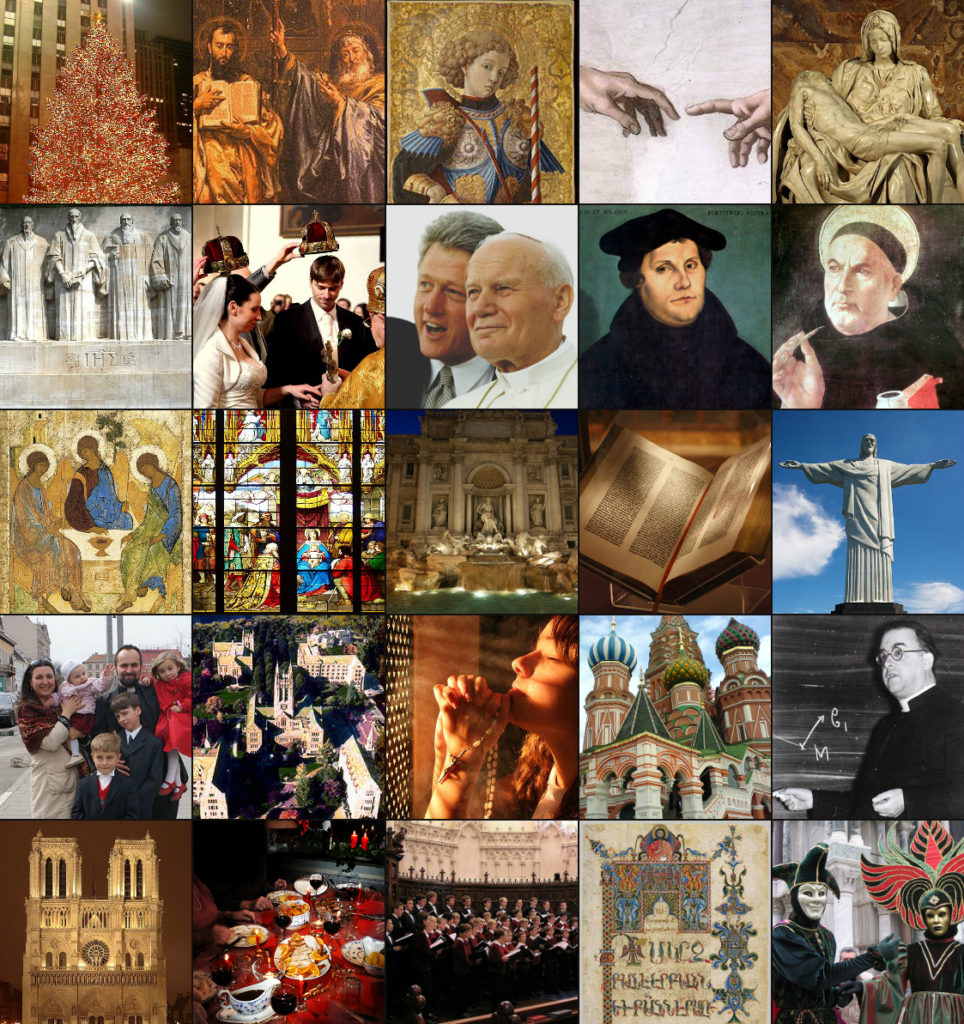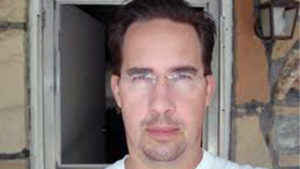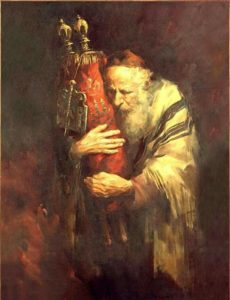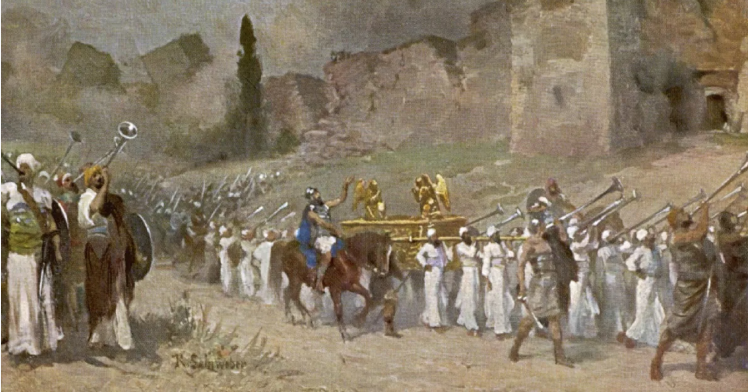by Laurent Guyénot
Christianity as controlled opposition
‘Inside every Christian is a Jew,’ stated Pope Francis. That is the simplest and the deepest truth about Christianity. Most Christians are not aware of this Jew inside them, yet he commands a large part of their worldview.

Meditating on this truth can be a mind-opening experience, radiating in a multiplicity of questions. Should we use Sigmund Freud’s concept of ‘projection’ and say that most Christians who hate Jews hate the Jew inside them? Or is this Jew a self-hating Jew, like every Jew according to Theodor Lessing (Jewish Self-Hatred, Berlin, 1930)? Perhaps inside every Christian are two Jews, one hating the other, Moses and Jesus. From whichever side we want to look at it, the fact is that Christians are, by New Testament definition, the spiritual heirs of Yahweh’s promise to Israel. They are new branches grafted onto the trunk of Israel, according to Paul’s metaphor (Romans 11:16-24).
What still needs to be explained is how Paul and his followers succeeded in convincing tens of thousands of Gentiles to become a new synthetic Israel, at a time when the very name of Israel was hated all around the Mediterranean Sea? How is it that the Christian religion, which would convert the Roman Empire to the worship of a Jewish Messiah, was born at the time when the biggest wave of Judeophobia was sweeping across the Empire? To answer that question, let’s examine the context.
Rome against Judea; Judea against Rome—heading by Ed.
At the turn of the millennium, during the prosperous reign of Augustus, Jews had gained advantageous situations in many parts of the Empire. They enjoyed freedom of cult and judicial autonomy, and were exempted from the civil formality of emperor worship, from all obligations on the Sabbath, and from military service. Moreover, they were allowed to collect funds and send them to the Jerusalem Temple bureaucracy.[17]
As Jews abused of their privileges and conspired to increase them, Gentile resentment grew and anti-Jewish riots followed. In the year 38 CE, the Greeks of Alexandria sent a delegation to Rome, whose leader Isidoros complained that the Jews are ‘trying to stir up the entire world.’[18] The emperor issued an edict declaring that, if the Jews continued to sow dissent and ‘to agitate for more privileges than they formerly possessed, I will by all means take vengeance on them as fomenters of what is a general plague infecting the whole world.’ This edict was followed by another addressed to all the Jewish communities of the empire, asking them not to ‘behave with contempt towards the gods of other peoples.’[19]
Tensions were high in Jerusalem, where the pro-Roman Herodian dynasty faltered. It was at this time that a conspiracy of Pharisees and Sadducees denounced Jesus to the Romans as a seditious would-be king of the Jews, calculating, according to the Fourth Gospel, that ‘it is to [the Jews] advantage that one man should die for the people, rather than that the whole nation should perish’ (John 11:50). Flavius Josephus mentions several Jewish revolts in the same period, including one during the Passover of 48 or 49 CE, after a Roman soldier assigned to the entrance of the Temple committed the irreparable: ‘raising his robe, he stooped in an indecent attitude, so as to turn his backside to the Jews, and made a noise in keeping with this posture.’[20]
In 66 the Jewish War broke out, when the Sadducees defied Roman power by banning from the Temple the daily sacrifices offered in the name and at the expense of the Emperor. After the destruction of the Temple by the general and future emperor Titus in 70, the embers of Jewish messianism continued to hatch for 70 more years, and ignited Palestine for the last time with the revolt of Simon Bar Kochba, which provoked in retaliation the complete destruction of Jerusalem, its conversion into a Roman city renamed Aelia Capitolina, and the banning of Jews from it. By then, enmity against the Jews had reached a climax throughout the Empire.
This is precisely the time when Christian missionaries spread the cult of Christ in all the major urban centers of the Empire, starting with those inhabited by large Jewish communities, such as Antioch, Ephesus and Alexandria. A reasonable explanation for that synchronicity is that Christianity, in its Pauline version, is a fundamentally Judeophobic religion that surfed on the greatest wave of Judeophobia. As the cult of a demi-god victim of the Jews, it satisfied the general perception of Jews as a ‘race hated by the gods’ (Tacitus, Histories V.3).
But that explanation fails to account for the fact that the triumphant Judeophobic religion is not a pagan religion, but the fundamentally Jewish cult of a Jewish Messiah allegedly fulfilling Jewish prophecies. What we have here is a bizarre case of Hegelian dialectic, one in which the ‘antithesis’ is controlled by the ‘thesis’ and absorbed into it.
______ 卐 ______
Editor’s Note: Precisely what KevinMac and most white nationalists are unwilling to acknowledge. The enormity of the psyop is evident in the following passages of Laurent’s essay:
______ 卐 ______
Through Christianity, Roman Judeophobia became Judaized. The Gospel narrative makes the Jews the plotters against the Son of God, but this Son of God is a Jew, and soon the ‘Mother of God’—as Isis, Ishtar or Artemis were called—would be turned into a Jewess too. Most importantly, Judeophobic Christians will adopt the Tanakh and the bizarre Jewish paradigm of the ‘jealous god’ with his ‘chosen people’. From that point of view, it is as if Christ nailed on the Cross had been used as a bait to pull anti-Jewish Gentiles, by the line of the Old Testament, into worshipping Jewishness.
This process fits the concept of Jewish controlled opposition conceptualized by Gilad Atzmon in his book Being in Time. Whenever Jewish power becomes threatened by the Gentiles’ resentment against it, it produces ‘a satellite Jewish dissent’ designed to control and stir Gentile opposition. This Jewish dissent monopolizes the protest and keeps non-Jewish dissenters in line. According to a parable proposed by Atzmon, the purpose is to make sure that any Jewish problem suffered by the Gentiles is treated by Jewish doctors, whose fundamental interest is that the problem is not solved. By claiming to have the solution to the problem, dissident Jews deceive Gentiles on the nature of the problem, and ultimately aggravate the problem.
As Atzmon sees it, the process does not necessarily result from a secret agreement between Jewish power and Jewish dissent. The Jewish opposition intellectuals
are not necessarily consciously deceiving us; indeed, they may well be doing their best, within the context of a limited tribal mindset. The truth is, they cannot think out of the box, they cannot climb over the ghetto walls that enclose their own tribal beings.[21]
We can see this tribal mindset as a collective instinct of conservation that is part of the essence of Jewishness. Ideological quarrels between Jews are sincere, but they remain quarrels between Jews, who tacitly agree to speak louder than Gentiles and exclude from the discussion any radical criticism of Jewishness.
In the light of Atzmon’s analysis, it is conceivable that Christianity’s primary function was to absorb Greco-Roman Judeophobia into a movement that would ultimately reinforce the symbolic status of the Jews, by spreading the ‘chosen people’ propaganda myth fabricated five centuries earlier. Ezra had convinced the Persians that the Jews worshipped the God of Heaven like them; the Church went on convincing the Romans that, before Jesus, the Jews had been the only people worshipping the true God and loved by Him. Such creed from the Gentiles is worth a thousand Balfour declarations, in the march toward world domination by way of deception. In the Christian narrative that says, ‘God chose the Jewish people, but then rejected them,’ the benefit from the first part is much higher than the cost of the second, which hardly makes sense anyway.
If the Italian rabbi Elijah Benamozegh is right in saying that ‘The constitution of a universal religion is the ultimate goal of Judaism,’ then Christianity is a great step toward that glorious future: ‘In Heaven, one God of all men, and on earth a single family of peoples, among whom Israel is the eldest, responsible for the priestly function of teaching and the administration of the true religion of humanity.’[22] Christianity has prepared the way for the next stage: the cult of the crucified Jew is now being superseded by the cult of the exterminated Jews.
______________
[17] Michael Grant, Jews in the Roman World, Weidenfeld & Nicolson, 2011, pp. 58–61.
[18] Joseph Mélèze Modrzejewski, The Jews of Egypt, From Rameses II to Emperor Hadrian, Princeton University Press, 1995, p. 178.
[19] Quoted in Michael Grant, Jews in the Roman World, op. cit., pp. 134–135.
[20] Flavius Josephus, Jewish War, II, 224, quoted in Michael Grant, Jews in the Roman World, op. cit., p. 148.
[21] Gilad Atzmon, Being in Time: A Post-Political Manifesto, Skyscraper, 2017, p. 208.
[22] Élie Benamozegh, Israël et l’humanité (1914), Albin Michel, 1980, pp. 28–29.
 After several hours of talking, drinking and listening to music, Steve ‘wanted to leave and I didn’t want him to leave’. Dahmer struck Steve from behind with the dumbbell while Steve was sitting in a chair. When he fell unconscious, Dahmer choked him to death with the barbell bar.
After several hours of talking, drinking and listening to music, Steve ‘wanted to leave and I didn’t want him to leave’. Dahmer struck Steve from behind with the dumbbell while Steve was sitting in a chair. When he fell unconscious, Dahmer choked him to death with the barbell bar.






